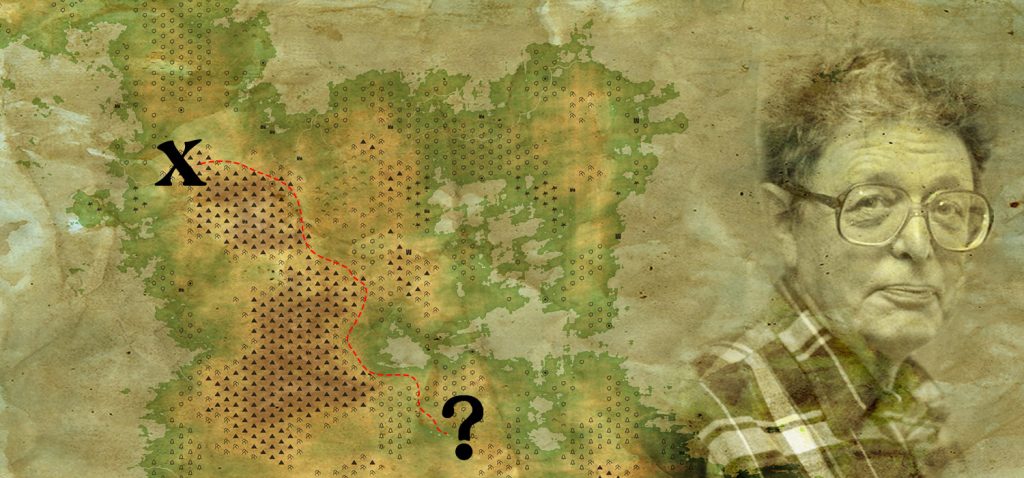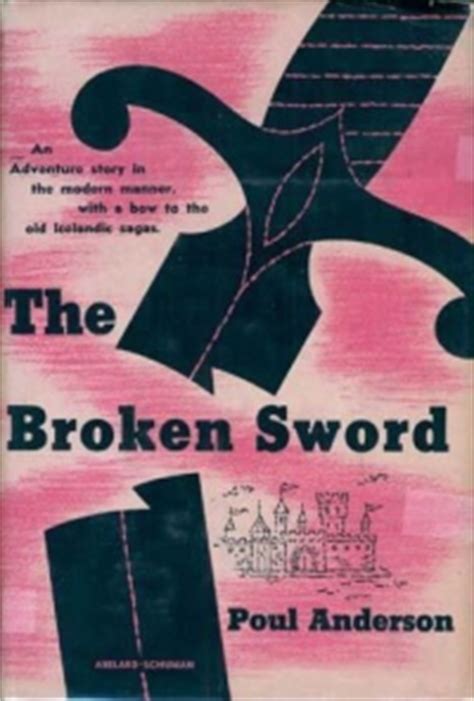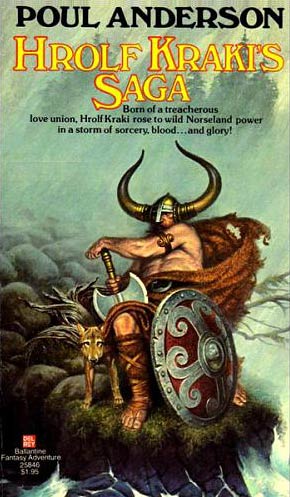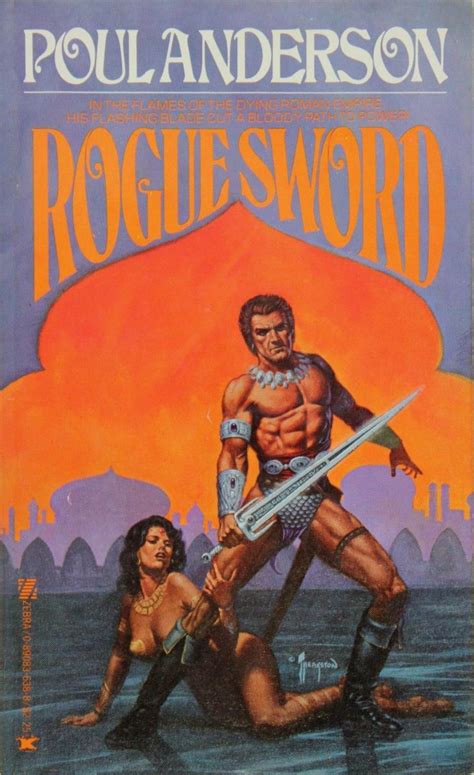
Where to Start with the Fantasy Fiction of Poul Anderson
by Bill Ward

Poul Anderson (1926-2001) is one of those authors whose prolific output – over one hundred novels and at least as many short stories – is as impressive as it is potentially intimidating. A great many of our contemporary authors tend to stick with one kind of story or book for branding purposes, often adopting new pseudonyms if they dare deviate from the brand, but this was most definitely not the case for the old school genre giants of the mid-twentieth century. For this group, science fiction and fantasy were all under one very big umbrella, specialist short fiction markets were still a viable way to achieve name recognition with readers, and audiences generally seemed to understand that writers weren’t locked into writing one sort of thing.
And Anderson most definitely did not limit himself to any one sort of thing. From hard science fiction to space opera, Norse-inflected historical fantasy to straight sword-and-sorcery, time travel, alternate history, mystery, and genre-crunching combinations perhaps best labeled as ‘all of the above,’ Anderson was a writer of many interests, and for many markets. After a lifetime spent creating his numerous series and standalone novels, Anderson was justly crowned one of science fiction’s Grand Masters, winning just about every other genre award to boot. None of this, though, makes his body of work any easier to approach from the outside.
Though Anderson was primarily a writer of science fiction, he had a lifelong and abiding passion for history and myth, particularly the Norse sagas of his own Scandinavian heritage. Medieval and Dark Age history was a topic near-and-dear to his heart – he was one of the founders of the Society for Creative Anachronism after all – and even many of his science fiction works dealt with time travel as a way to merge all his passions into one savory genre stew.

So where to start? It is no stretch to suggest that every fan of fantasy and sword-and-sorcery should read The Broken Sword (1954), a seminal work of fantasy fiction released the same year as The Fellowship of the Ring. Drawing heavily on Norse and Celtic mythology – a statement that applies to practically all of Anderson’s fantasy works – The Broken Sword is a pocket epic, a short sword-and-sorcery novel that blends high and even mythic fantasy tropes with the fast pace of the Howardian tradition. In a grim, fantastical England in which men, trolls, and elves vie for supremacy, the novel tells the tale of a pair of changelings, one a human raised by elves, the other an elfin-troll created to take his place, who are destined to clash as part of an apocalyptic conflict. A tale of magic swords, bitter dooms, and gods that walk among men, The Broken Sword would influence a great many fantasy writers, perhaps most especially Michael Moorcock, who rated the novel as greater than Tolkien. Paperback copies as part of the Ballantine Adult Fantasy series are still easy to find, but the more recent 2002 trade from Gollancz features the novel as it originally appeared in 1954, in all its blood-and-thunder glory.
And speaking of influencing Michael Moorcock, whose tales of an Eternal Champion swept up in an epochal battle between the forces of Law and Chaos forever changed pop culture, we have Three Hearts and Three Lions. Expanded and published at novel length in 1961, but originally a novella appearing in 1953, Three Hearts tells the story of a man plucked from a modern battlefield and transported into the heroic past – in which he is a champion reborn, and is swept up in an epochal battle between the forces of Law and Chaos! Based on the legend of Ogier the Dane, paladin of Charlemagne, and drawing on everything from Arthurian Romance to C.S. Lewis, Three Hearts is quintessential Anderson, channeling an amalgam of influences through the lens of pulp adventure.

Syncretising the themes, texture, and even language of the European tradition with modern fantasy is a hallmark of Poul Anderson’s fantasy fiction. Hrolf Kraki’s Saga (1971) best exemplifies this, being a full-on fantasy rendition spun out from an actual Norse saga dating from the time of Beowulf, but surviving and set down in the later Icelandic tradition. Kingship, betrayal, romance, and war swirl through its pages, together with fantasy elements that resonate as authentic myth in the form of trolls and elves, interfering witchcraft and a were-bear berserker. While Anderson would go on to more extensively novelize a Norse saga in his The Last Viking trilogy, Hrolf Kraki’s Saga is a true work of historical fantasy, a heady mix of Germano-Norse tradition inflected with Weird Tales inspiration.
Anderson’s short fantasy fiction also has standout works, with many of his classic sword-and-sorcery stories appearing again and again in ‘best of’ anthologies over the years. There are his tales of Cappen Varra, rogue and bard, one of which is in the first Thieves World shared world anthology, “The Gate of Flying Knives,” Reading like a Dungeons & Dragons session – in the best possible way of course – Anderson’s Thieves World entry is the gonzo account of a temple raid through a magical portal, complete with flying monstrosities and climax that will bring a smile to the face of math majors and Mr. Wizard fans alike. My own personal favorite Anderson short, though, is “The Tale of Hauk.” The story of a son that must confront the unrested shade of his embittered father. It is told with the sparse beauty of the Anglo-Norse tradition while creating a modern sense of suspense and horror that can only exist in a world that has known Edgar Allan Poe. All of these shorts, and some excellent non-fiction as well including the seminal “On Thud and Blunder,” are collected in the unimaginatively named collection, Fantasy.

Anderson’s catalog is big, varied, and multi-genre. The above novels and stories are a great place to start with his fantasy, but two honorable mentions need to be included that both make excellent introductions to the author, and will more than likely be appreciated by fans of fantasy fiction. Rogue Sword, a rollicking pulp swashbuckler set in 14th century Byzantium would not be out of place serialized in Adventure Magazine alongside Harold Lamb and Talbot Mundy. Spanning the breadth of the Eastern Mediterranean during a time a vast upheaval and international conflict, Rogue Sword is both a pedal-to-the-metal picaresque adventure and a finely observed work of historical fiction. And The High Crusade, one of Anderson’s most famous works, is a justified classic of science fiction. Also taking place in the 14th century, it tells the essentially tongue-in-cheek tale of an English crusading army that is interrupted by an alien invasion. In what proves to be one humorous reversal of fortune after another, the sophisticated alien empire finds themselves invaded by a medieval force whose brutal primitiveness proves to be the alien’s Achilles heel.
There is of course more, a lot more, that can be said about Poul Anderson’s fantasy and historical fiction. But the above books are a snapshot of his best work in this area, and if a new reader to Anderson enjoys any one of them, they will no doubt find themselves searching for more from this classic writer who always managed to have one foot in the rational world of science fiction, and the other in the grim Ragnarokian world of heroes and trolls, magic blades and beautiful maids.
Stay connected with us on social media platform for instant update click here to join our Twitter, & Facebook
We are now on Telegram. Click here to join our channel (@TechiUpdate) and stay updated with the latest Technology headlines.
For all the latest Gaming News Click Here
